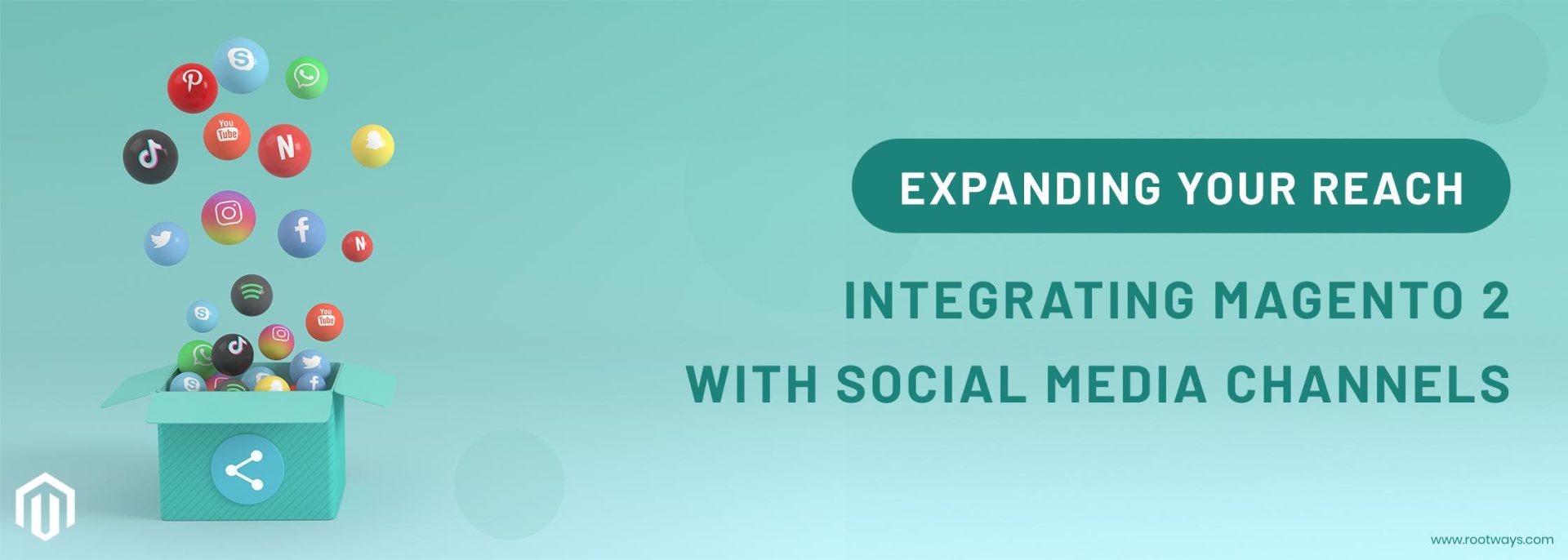Integrating social media platforms with your Magento 2 store can be a valuable strategy for increasing your online presence, reaching a wider audience, and driving more traffic and sales. Here’s a step-by-step guide on how to integrate social media platforms with your Magento 2 store:
1. Social Login:
– Implement social login options on your Magento 2 store. This allows customers to sign in or register using their social media profiles, making the process quicker and more convenient. It also provides you with access to their social data, which can be used for personalized marketing.
2. Social Sharing Buttons:
– Include social sharing buttons on product pages and blog posts. When customers find a product or content they like, they can easily share it with their social networks. Make sure these buttons are prominently placed and visually appealing.
3. User-Generated Content (UGC):
– Encourage customers to create UGC such as reviews, photos, and videos about your products. You can integrate this content into your product pages or create dedicated UGC sections. UGC serves as social proof and helps build trust.
4. Social Feeds Integration:
– Display your social media feeds (e.g., Instagram, Facebook, or Twitter) directly on your Magento store. This provides visitors with a real-time view of your social activity, showcasing new products, promotions, and customer interactions.
5. Product Tagging and Shoppable Posts:
– If you use platforms like Instagram or Facebook, take advantage of product tagging and shoppable posts. Tag your products in social media posts, allowing users to click and purchase directly from the platform.
6. Social Media Advertising Integration:
– Connect your Magento 2 store with your social media advertising accounts (e.g., Facebook Ads Manager). This enables you to create and manage ad campaigns directly from your Magento dashboard, targeting specific customer segments based on social media data.
7. Social Proof Notifications:
– Implement social proof notifications on your store, showing when other customers have recently purchased or engaged with your products. This creates a sense of urgency and trust.
8. Social Media Analytics:
– Integrate social media analytics tools to track the performance of your social media efforts. Monitor the ROI of your social media campaigns, track referral traffic, and identify which social channels are driving the most conversions.
9. Messenger Chatbots:
– Use social media chatbots on platforms like Facebook Messenger to provide real-time customer support and answer inquiries. These chatbots can also recommend products and facilitate the purchasing process.
10. UGC Contests and Hashtags:
– Create contests or campaigns that encourage customers to generate UGC related to your products. Use branded hashtags to collect and showcase this content on social media and your website.
11. Social Listening:
– Implement social listening tools to monitor conversations about your brand and products on social media. Engage with customers, respond to feedback, and address issues promptly.
12. Influencer Marketing:
– Collaborate with influencers in your industry to promote your products on social media. Ensure that influencer posts link back to your Magento store, and consider offering discount codes or affiliate partnerships to incentivize sales.
13. Responsive Design:
– Ensure that your Magento 2 store has a responsive design that looks and functions well on mobile devices, as many social media interactions happen on smartphones and tablets.
14. Consistent Branding:
– Maintain consistent branding across your Magento store and social media profiles. Use the same logo, colors, and messaging to create a cohesive brand identity.
15. A/B Testing:
– Continuously A/B test different social media integration strategies to determine what works best for your specific audience and products.
By implementing these strategies, you can seamlessly integrate social media platforms with your Magento 2 store to enhance social selling, engage customers, and drive more conversions. Regularly analyze your results and adjust your approach based on customer feedback and changing trends in social media marketing.
